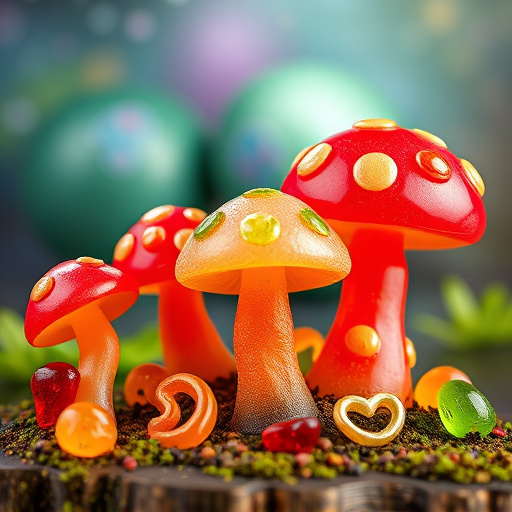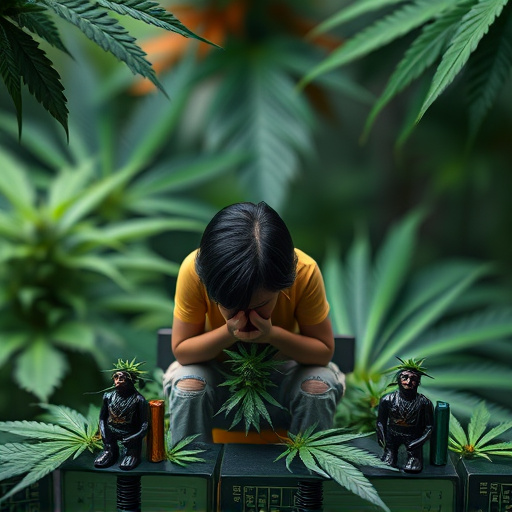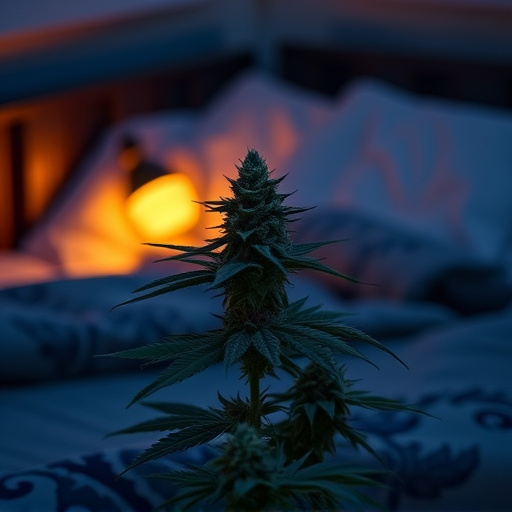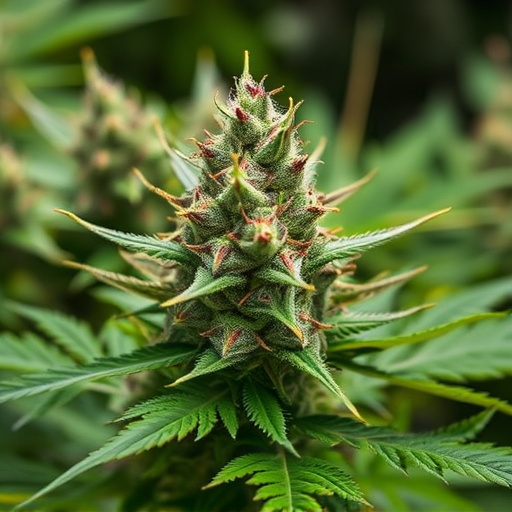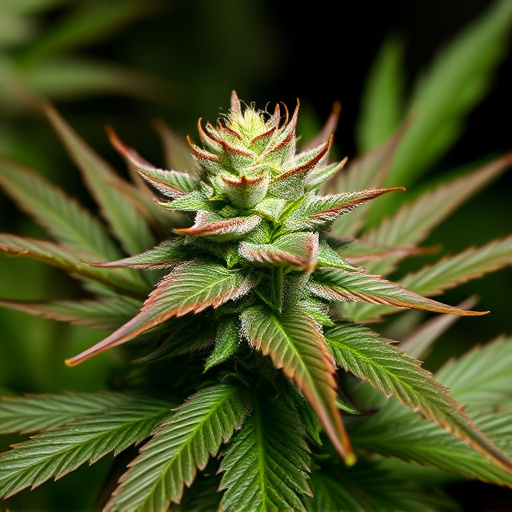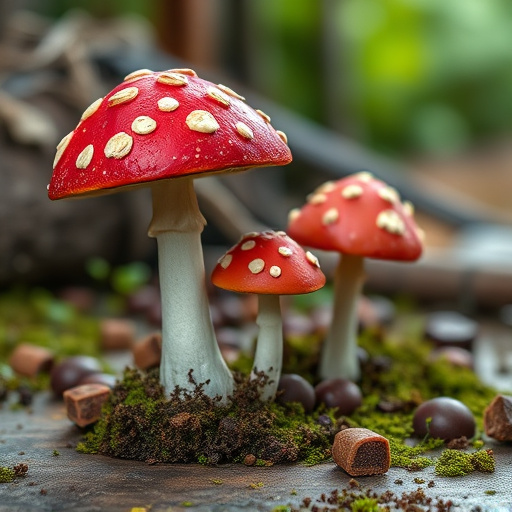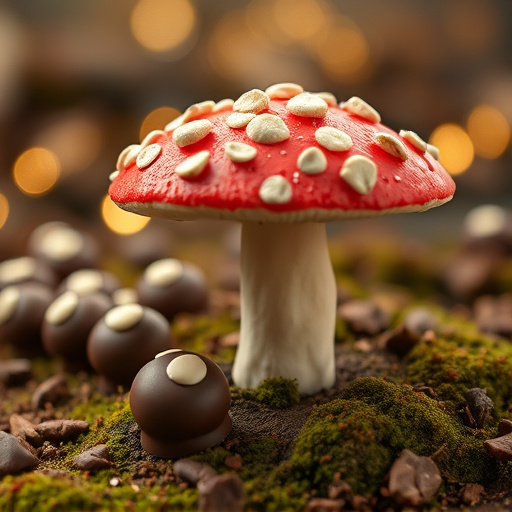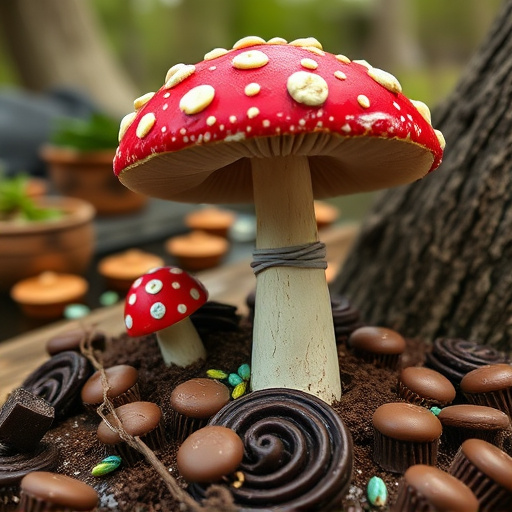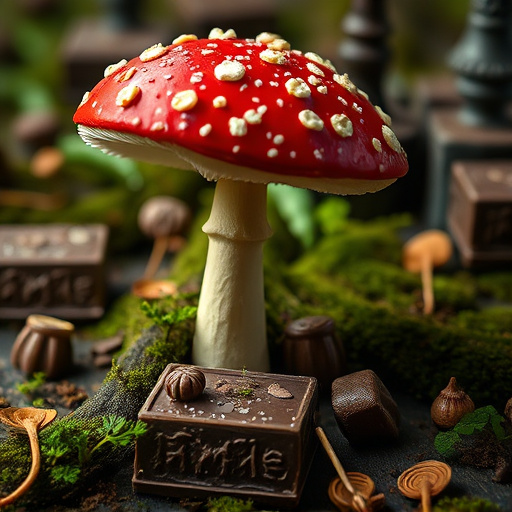Magic mushroom chocolates, containing psilocybin, offer recreational and therapeutic experiences by interacting with brain serotonin receptors, stimulating dopamine release, and promoting neuroplasticity. While they enhance emotional well-being and cognitive function, users should exercise caution due to variable responses and potential side effects. Research suggests microdosing may be beneficial for mental health treatments targeting dopamine levels.
“Unveiling the enchanting world of Magic Mushroom Chocolates: a unique blend of ancient wisdom and modern gastronomy. This article explores the intriguing intersection of psychotropic fungi and gourmet treats, delving into their scientific effects on dopamine levels in the brain. From understanding the nature of magic mushrooms to mastering their infusion in chocolates, we navigate the intricate balance of potential benefits and risks. Discover creative recipes and responsible use guidelines for this emerging trend, where science meets sensory delight.”
- Understanding Magic Mushrooms and Their Effect on the Brain
- – What are magic mushrooms?
- – The science behind their effects on dopamine levels
Understanding Magic Mushrooms and Their Effect on the Brain
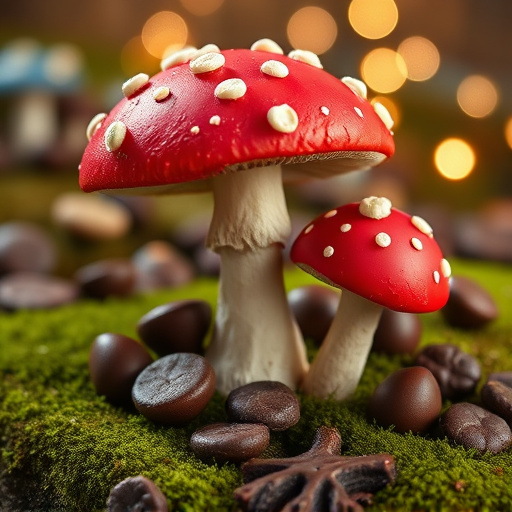
Magic mushrooms, scientifically known as Psilocybin mushrooms, have been a subject of interest in both recreational and therapeutic contexts for decades. When consumed, they induce a range of psychological effects due to their active compounds, primarily psilocin and psilocybin. These compounds interact with serotonin receptors in the brain, leading to altered perceptions, heightened creativity, and spiritual experiences often described as “mushroom trips.”
The effect of magic mushrooms on the brain is complex. Research suggests that they can stimulate the release of dopamine, a neurotransmitter associated with pleasure and reward, which may contribute to the intense emotional highs experienced by users. Increased dopamine levels have been linked to heightened sensory perception and improved mood. Moreover, psilocybin has shown potential in clinical settings for treating conditions like depression and anxiety, as it promotes neuroplasticity and can facilitate profound personal insights. However, it’s crucial to approach magic mushroom chocolates or any psilocybin-based therapy with caution due to the variability of individual responses and potential side effects.
– What are magic mushrooms?
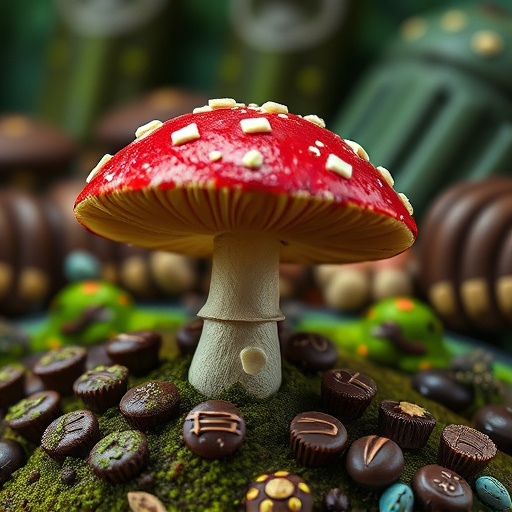
Magic mushrooms, scientifically known as psilocybin mushrooms, are a type of fungi that have been used for centuries in various cultural and spiritual practices. They contain psychoactive compounds, primarily psilocybin and psilocin, which can alter a person’s perception, mood, and cognitive functions when consumed. The effects often include heightened senses, visual hallucinations, and altered time perception.
When incorporated into chocolates, these mushrooms offer a unique experience for consumers seeking an elevated sensory journey. Magic mushroom chocolates combine the psychotropic properties of the fungi with the delightful taste and texture of chocolate. This fusion can potentially boost dopamine levels in the brain, leading to feelings of pleasure, satisfaction, and enhanced emotional well-being. The impact on dopamine levels contributes to the appealing effects sought after by users looking for a mindful or recreational experience.
– The science behind their effects on dopamine levels
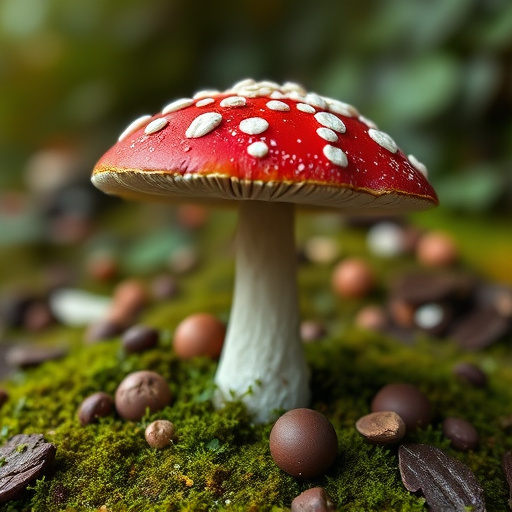
Magic mushroom chocolates, a delightful treat for many, are more than just a delectable indulgence—they offer an intriguing glimpse into the complex interplay between psilocybin (the active compound in magic mushrooms) and the human brain’s chemistry. When consumed, psilocybin is metabolized into psilocin, which interacts with serotonin receptors, particularly those involved in dopamine regulation. Dopamine, often dubbed the ‘feel-good’ neurotransmitter, plays a pivotal role in reward, motivation, and pleasure.
The impact of magic mushroom chocolates on dopamine levels is multifaceted. Research suggests that psilocin can increase dopamine release in specific brain regions, leading to heightened sensory perception and altered states of consciousness. This effect may contribute to the profound emotional experiences and enhanced creativity sometimes associated with psychedelic trips. Moreover, some studies indicate that regular consumption of microdosed magic mushroom chocolates (containing low, controlled amounts of psilocybin) could potentially support neuroplasticity and improve cognitive function by modulating dopamine signaling, offering a promising avenue for further exploration in the field of neuroscience and mental health treatments.
In conclusion, while the idea of high-potency magic mushroom chocolates may be enticing, it’s crucial to remember that the science behind magic mushrooms and their impact on dopamine levels is complex. While they have shown potential therapeutic benefits, consuming them in chocolate form, especially at high potencies, introduces unknown variables. Further research is needed to understand the effects on both mind and body. Responsible consumption and awareness of individual tolerance are paramount when exploring any psychoactive substance.
